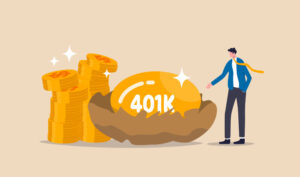
Solo 401k and the UBIT Rules
One of the advantages of using retirement funds, such as a 401(k), Solo 401k or an IRA to make investments is that in most cases

One of the advantages of using retirement funds, such as a 401(k), Solo 401k or an IRA to make investments is that in most cases

In general, excluding Roth IRAs, retirement plans, including Self-Directed IRAs and Solo 401(k) plans are subject to required minimum distributions (RMDs). The RMD rules are

The EARN Act passed unanimously through the Senate. Along with the House bill, the legislation will help shape how we save for retirement.

If you own a business and do not elect the entity, by default, you are a sole proprietorship and can establish a Solo 401()k plan.

The SECURE Act 2.0 contains some significant IRA and 401(k) changes, including new RMD age, expand and ‘Roth-ify’ Catch-up contributions, higher IRA catch-up contributions for those from age 62-65, and much more.

Solo 401(k) IRS Rules and guidelines refer to the prohibited transactions with disqualified persons and assets you cannot purchase with retirement funds.

The Solo 401(k) Employee Deferral Rules state that you can contribute up to $19,500 ($26,000 if age 50+) for 2021 in pre-tax or Roth.

What is UBTI? UBTI is defined as “gross income derived by any organization from any unrelated trade or business regularly carried on by it” reduced

Not sure how to report an IRA or 401(k) CARES Act Distribution? IRA Financial Group explains which form you need to fill out and include when you file taxes.

The Employer Profit Sharing Contribution rules can be tricky, however, there are ways to maximize your Solo 401(k) contributions.

Click here to schedule a call instead.
We don’t share your personal information with anyone. Check out our Privacy Policy for more information.
[email protected]
1-800-472-1043, Ext. 5258
IRA Financial Group
5109 S Broadband Lane
Sioux Falls, SD 57108-2208